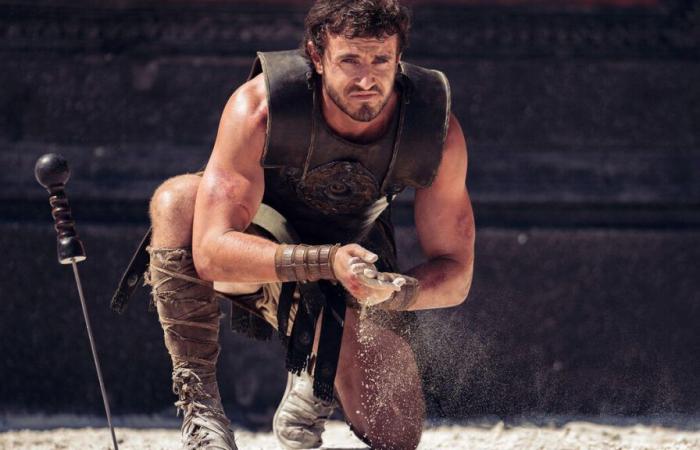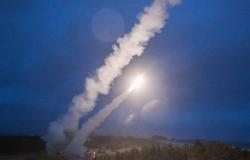
Gladiator II, the long-awaited sequel to Ridley Scott's cult film released in 2000, is already a hit at the French box office, and exceeded one million spectators in its first week of release. Not really a surprise for this spectacular blockbuster which delights fans of bloody epics.
But according to some, the American director seems to have pushed the envelope a bit further in overbidding during this second opus. In the United States, where the film is not yet in theaters, it has already raised the hackles of some historians.
For many spectators, the bestiary of this new episode, this time without Russell Crowe, is explosive to say the least and raises a number of questions. Hyperaggressive “zombie” monkeys, rhinos or sharks in the arena within sword reach of the hero Lucius, played by the leaping Paul Mescal.
For Éric Teyssier, lecturer in Roman history at the University of Nîmes, Ridley Scott's film is far from the mark from a historical point of view: “What he does is always a mixture of real facts and supercharged fiction, even if it means taking largesse from reality.”
“Clashes between wild animals could also be organized”
The action of the film ignores the reality of amphitheaters and other “circus maximus” to serve the scenario, which the historian completely accepts in the context of fiction. But this ultimately sometimes leads to historical misunderstandings. He too is surprised by these monkeys which he describes as “rabid”: “These monkeys, even in the natural setting, do not exist,” he says with a laugh. To my knowledge, there has been no use of rabid monkeys for arena combat. On the other hand, wild animals were regularly used in hunts during the Games, particularly at the Colosseum.
“Specialized gladiators, hunters in Latin, professional hunters were then in the arena to face big beasts. Sometimes clashes between wild animals could also be organised”, specifies the historian, adding that “it was a form of aperitif to the main show”. “On the other hand, rhinoceroses have indeed been introduced into the arena, but I do not recommend riding on the beast,” Eric Teyssier quips again. In reality, the bestiary above all showed the value of the Emperor: the more exotic the animals were, the more it testified to the size and power of the Empire,” explains this fan of historical reconstructions. And for good reason, the arena is above all a political place in the Roman Empire.
The “circus games” in fact followed a regulatory order. Hunts in the morning, death sentences at noon and gladiator fights in the afternoon. In this, for the historian, the gladiator Lucius combines all the roles, both that of hunter when he fights against a rhino and meridians, a condemned to death, when he faces the monkeys and finally that of a classic gladiator the rest of the time.
Orca hunting in Ostia
The problem with the film is that “at that time, many gladiators chose this profession. Death is no longer systematic. There is a search for glory possible. They could become stars at the time, Zidane of today, and no longer sacrifiables as in the time of Spartacus (1st century BC),” explains the historian.
Another historical approximation of the film, the naval battles called naumachia in the Colosseum did not take place at the time described. “Under Titus, son of Vespasian, in A.D. 80, there were two naumachia. Subsequently, the basements of the Colosseum were built to install sets, cages for the wild animals, areas for the gladiators, making it impossible to flood the arena.” However, this film is supposed to take place in 211, one hundred and fifty years later! », Explains the specialist.
The historian also assures that the presence of sharks in this nautical reconstruction is science fiction. “Wanting to put Jaws in the middle of Gladiator II is not credible,” laughs the author of “Gladiators, History and Myth”, published by Glénat. Éric Teyssier, however, remembers an anecdote that could have inspired Ridley Scott's screenwriters. “During the time of Emperor Claudius, an orca became stranded in the port of Ostia after a ship containing animal skins sank in the port. The emperor then organized a public orca hunt. But it was really exceptional and not at all in an arena,” he confides.
A good player, our historian puts things into perspective. “I am more annoyed by pseudoscientific documentaries that we can see on certain platforms than by Gladiator II, which is pure fiction even if it is inspired by reality,” he confides. “Gladiator changed my life. He pushed me to change my specialty at the time. When I give my lessons, I can say: everything you see there is generally false. So, thank you Ridley Scott,” the teacher concludes with a burst of laughter.





